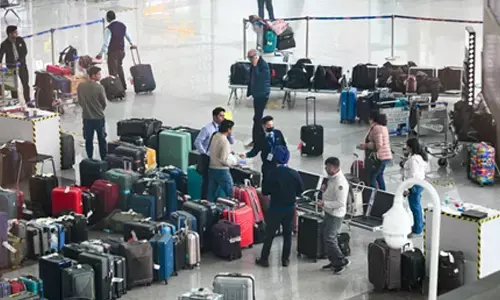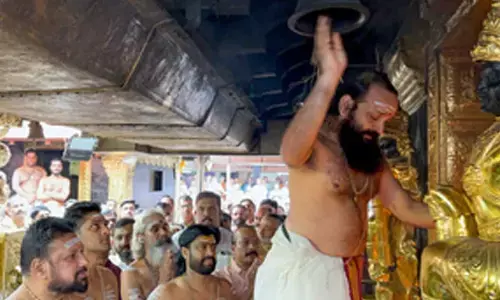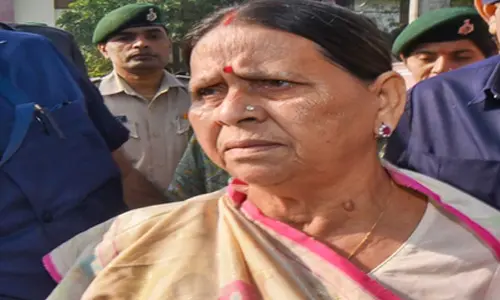SIMI planning terror strikes to retaliate?

SIMI Planning Terror Strikes to Retaliate. With the arrest of top Indian Mujahideen operatives, including Pakistani bomb-making expert Waqas, Delhi Police and intelligence agencies suspect the banned Students Islamic Movement of India (SIMI) may be again regrouping to launch its operations to gather funds for terror acts.
 New Delhi: With the arrest of top Indian Mujahideen operatives, including Pakistani bomb-making expert Waqas, Delhi Police and intelligence agencies suspect the banned Students Islamic Movement of India (SIMI) may be again regrouping to launch its operations to gather funds for terror acts.
New Delhi: With the arrest of top Indian Mujahideen operatives, including Pakistani bomb-making expert Waqas, Delhi Police and intelligence agencies suspect the banned Students Islamic Movement of India (SIMI) may be again regrouping to launch its operations to gather funds for terror acts.
The interrogation of Waqas, or Zia-ur-Rehman, who was arrested in March from Ajmer, gave police the first hint that the SIMI may be planning to regroup and strike roots in different parts of India, including the national capital, top police sources told IANS.
Waqas, who is currently in custody of Delhi Police, told interrogators about the active members of SIMI.
Police learned about his links with Abu Faizal alias 'Doctor', a top SIMI member, who used to motivate Muslim youth to form a separate wing called 'Maal-e-Ganimat', to indulge in dacoity by robbing banks.
Faizal was arrested in December last year after he escaped from Madhya Pradesh's Khandwa jail along with five other SIMI members in Oct 2, 2013. Faizal was the mastermind of the jailbreak.
As part of the 'Maal-e-Ganimat', which means to acquire funds by any means, Faizal's group robbed a rural bank in Narmada in 2009. He was also involved in bank lootings in Dewas and Itarsi, in Madhya Pradesh.
Delhi Police officials said Faizal was never involved in any terror activities in the state, but was involved in providing the terror funds through bank loot. He was in touch with the Indian Mujahideen men before his arrest in 2011.
According to police sources, IM commanders based overseas, including in Pakistan, have asked their underground operatives in India to involve SIMI activists in regrouping. Sources say the regrouped SIMI might begin resorting to "Maal-e-Ganimat" or "Ganimat ka Maal".
"If the SIMI is formed again, the incidents of robbery and dacoity might also increase in the country," a police officer who did not wish to be named told IANS.
Before 2010, SIMI members were found to be involved in several bank robberies in the middle and southern parts of the country.
Police suspect that five SIMI operatives who were very close to Faizal and were part of the Khandwa jailbreak could be involved in regrouping of SIMI. After the jailbreak, while Faizal was nabbed, the five men are still absconding.
"They have established their old contacts and are trying to motivate Muslim youth, especially those coming from low income families," sources in Delhi Police told IANS.
Delhi Police along with the Intelligence agencies recently launched a special hunt to zero down on the five absconding SIMI members. The five are Aizazuddin, Aslam, Zakir Hussain, Sheikh Mehboob and Iqrar.
They belong to Madhya Pradesh and Maharashtra.
This week, the Delhi Police Special Cell took custody of Faizal for his suspected links with Waqas.
SIMI was formed in Aligarh in 1977 and had thousands of members and offices in almost every district of Madhya Pradesh before it was banned in 2002. The group is said to believe in fundamentalist Islam and to spread its values. In 2007, the Supreme Court of India described SIMI as a "secessionist movement".
The group came under the radar of intelligence agencies after 1998 and the then SIMI president Shahid Badr Falahi was arrested in Bahraich for an alleged provocative speech days after 9/11.
More than 1,200 SIMI members were arrested after the ban.
The IM, believed to be a byproduct of SIMI, was formed in 2010. The IM's members were found to be involved in the serial bombings in judicial courts at Varanasi, Faizabad and Lucknow.
Police say they have evidence to prove that SIMI was involved in the February 2005 blasts in Varanasi, the Shramjeevi Express blast in July 2005, the Varanasi blasts of March 2006, and serial blasts in courts in Lucknow, Faizabad and Varanasi in 2007.














